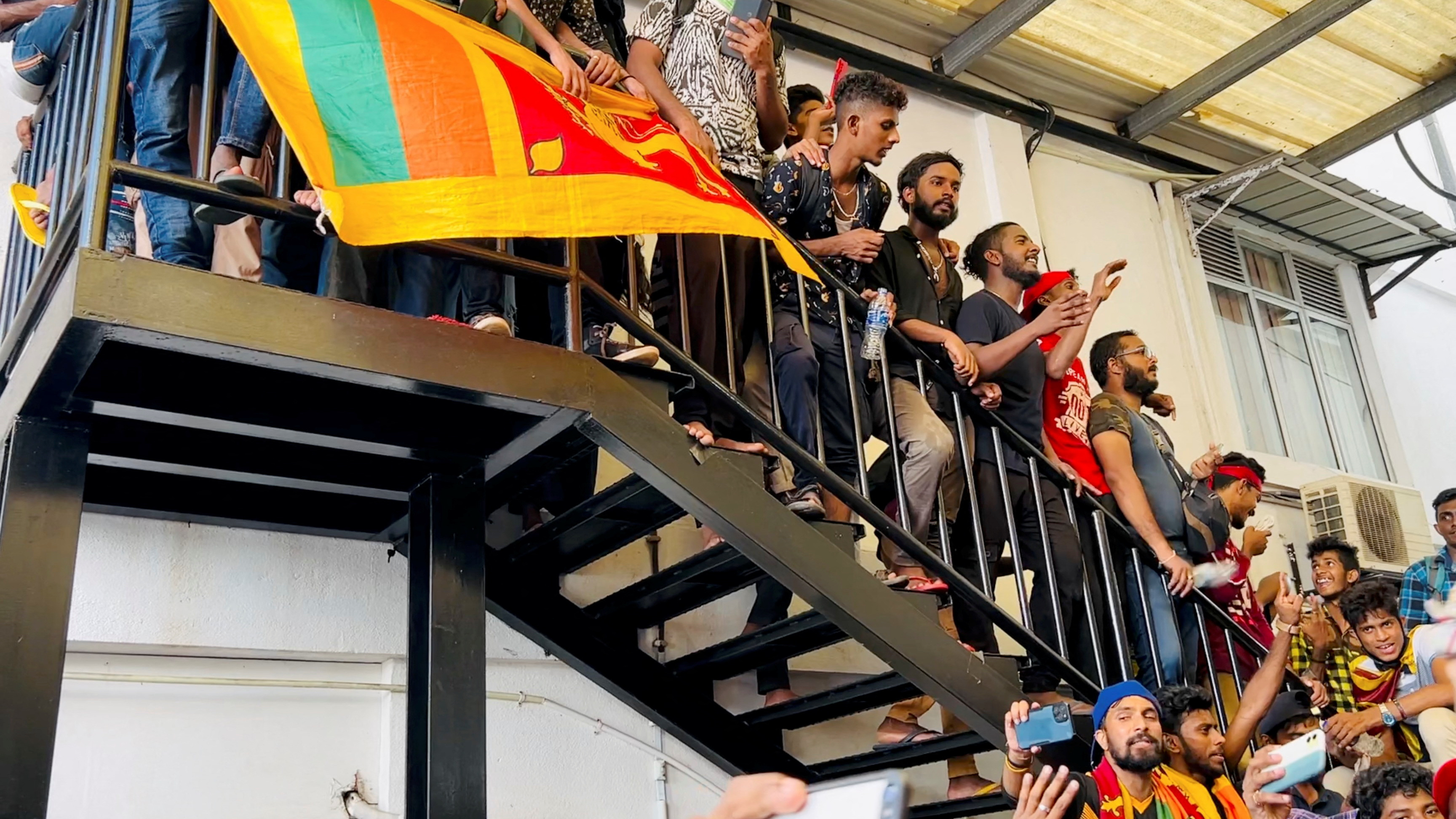Sri Lankans waited for the resignation of President Gotabaya Rajapaksa on Thursday, a day after he fled to the Maldives to escape a popular uprising against an economic crisis blamed on his government’s mismanagement.
Rajapaksa was expected to next head to Singapore though his final destination was not clear. His decision on Wednesday to make his ally Prime Minister Ranil Wickremesinghe the acting president triggered more protests, with demonstrators storming the premier’s office demanding that he quit too.
Rajapaksa had repeatedly assured the speaker of parliament that he would step down on Wednesday, but his resignation letter had not arrived as of early Thursday, said an aide to Speaker Mahinda Yapa Abeywardena.
Hospital sources said at least 45 people were hospitalised following a standoff between riot police and protesters on Wednesday night near the parliament building, as people demanded the ouster of both Rajapaksa and Wickremesinghe.
Local media said a 26-year-old protester who was hospitalised after being tear-gassed died of breathing difficulties.
“Some of the protesters who had gathered outside the parliament building have now dispersed,” police spokesman Nalin Thalduwa told Reuters. “The area is now calm.”
He said he had no information on how many were hospitalised.
An overnight curfew imposed by the acting president ended early on Thursday with no arrests, Thalduwa said.
Rajapaksa, his wife and two bodyguards left the main international airport near Colombo on an air force plane early on Wednesday. Maldives media said he was now waiting for a private jet to fly to Singapore.
Reuters could not confirm his travel plans.
Sri Lanka’s parliament is expected to name a new full-time president next week, and a top ruling party source told Reuters Wickremesinghe was the party’s first choice, although no decision had been taken.
Protests against Sri Lanka’s worst economic crisis since independence from Britain in 1948 simmered for months and came to a head last weekend when hundreds of thousands of people took over government buildings in Colombo, blaming the Rajapaksas and their allies for runaway inflation, shortages and corruption.







Click here to change your cookie preferences